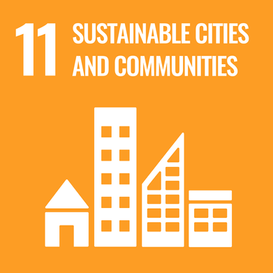
International development and humanitarian aid
What is development?
Development is a process that creates growth, progress, positive change or the addition of physical, economic, environmental, social, and demographic components. The goal of development is an increase in the level and quality of life of the population, and the expansion of income opportunities and social leadership. What is international development?
International Development is the cooperation with developing countries to strengthen the independent capacity of communities and countries to promote an increase in the standard of living of their population in a continuous and sustainable manner. As a field of knowledge, international development brings together information and approaches from various fields: economics, international relations, sociology and anthropology, politics, policy, and more.
Many developed countries operate government arms of foreign aid that promote development and international cooperation, such as the Israeli MASHAV program (acronym for of the Center for International Cooperation). Click here to read about MASHAV on the SID-Israel website or the MASHAV website.
Besides government agencies, the main bodies that take part in development activities are bilateral and multilateral organizations, such as the development banks, the World Monetary Fund (IMF), and the UN agencies (link to the list of international development and aid organizations). Another significant part of the development efforts is filled by non-profit organizations and private companies operating in diverse fields related to international development. From a local and global perspective, the cooperation between the various sectors is a significant part of the success of development activities, and integrated work on development challenges at the local and global level contributes to effective work that achieves a positive impact. International development is a field in which there is a continuous relationship between theory and practice. Theoretical approaches influence the promotion and implementation of policies at the national and international levels, and practices of assimilation in the field contribute to the development of approaches and theories.
Sustainable development is development that meets current needs, without harming future needs.
In 2015, the UN General Assembly adopted an agenda on sustainable development for 2015–2030. The agenda was signed by all 191 member states of the UN, including the State of Israel. The development of the agenda included the implementation of various layered considerations while looking at them as one system with mutual effects. The agenda contains 17 Sustainable Development Goals (SDGs) on economic, social, and environmental issues encompassing all areas of life, such as poverty eradication, adequate employment and economic growth, access to clean water, and more.
What is sustainable development?
SDGs—sustainable development goals
The SDG goals help create a common international infrastructure for strategic national and global development work plans. Under the 17 agenda goals, 169 specific goals and approximately 230 measurable indicators were set to assess progress in achieving the goals at the local and global levels. According to the UN resolution, all countries must act to achieve the goals, as they are not the sole responsibility of only developing countries. However, most goals relate mainly to gaps in accessibility to basic services such as water, electricity, and education. Therefore, they are primarily relevant to non-developed areas. Intra- and inter-sector collaborations are a critical part of the comprehensive approach to addressing development challenges and, thus, constitute a goal in and of themselves - goal 17 Partnerships to achieve the goals.
What is humanitarian aid?
Humanitarian aid is an activity that aims to respond to the lack of basic conditions of a population during a crisis or an emergency. In contrast to international development, aid operations usually do not intend to produce a lasting impact or contribute to the population's independence from an economic-social point of view but ather to provide an immediate solution to basic and acute shortages. Humanitarian aid is required in emergencies and extreme situations, which include natural and man-made disasters and their consequences, for example, floods, earthquakes, fires, drought and famine, and war and climate refugees. The humanitarian response usually includes providing food and shelter, medical and psychosocial services, hygiene and sanitation services, making clean water accessible, using technological means to solve problems, and more. In contrast to international development, aid operations often do not intend to produce a lasting impact or contribute to the population's independence from an economic-social point of view but to provide an immediate solution to basic and acute shortages.
To read about international aid on the United Nations Office for the Coordination of Humanitarian Affairs (OCHA) website, click here.
Ethical practice
Working in international development and humanitarian aid raises complex ethical questions that require deep consideration. How can aid be provided in a way that respects local communities and strengthens their autonomy? How can we ensure that development projects are sustainable and do not create dependence? What is the right way to balance urgent needs with long-term solutions? And how can external intervention be designed to avoid unintended harm and negative impacts, even with good intentions? These questions and others are at the heart of modern work in the fields of international development and humanitarian aid.
.png)
















